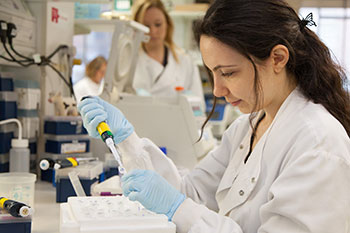
SHARE brings together clinical, biomedical, social science and community expertise in infectious diseases to investigate the inequalities that lead to poor health outcomes. We aim to ensure no one is left behind.
Our vision
Established in the heart of East London’s diverse community, the SHARE Collaborative is embedded within one of the largest NHS Sexual Health and HIV services and is supported by a multidisciplinary university of international standing.
SHARE brings together the expertise of Barts Health NHS Trust and Queen Mary University of London.
In partnership with our local community and in collaboration with the wider health and care economy, SHARE aims to deliver high-quality research that drives health equity and ensures no one is left behind.

Challenges in the East End
Barts Health NHS Trust is the regional hub for HIV for North East London and has a clinical centre that delivers care to around 6,000 people living with HIV. There are particular challenges in the racially diverse and socio-economically deprived East End communities that are served by Barts Health. These include:
High infection rate
Some of the highest rates of HIV infection and worst HIV outcomes in the UK are found in the boroughs of Waltham Forest, Newham and Tower Hamlets.
Low engagement
The disparities in health outcomes are largely due to late diagnosis of HIV, weak engagement with healthcare and the effects of other health conditions (co-morbidities).

Making HIV research and treatment more equitable
People living with HIV can take daily pills to keep them living well with HIV. However, for a variety of reasons, including stigma, some people struggle to take pills every day. There is now a long-acting injectable treatment for HIV that can be administered every two months, reducing therapy days from 365 to 12 per year. SHARE researchers have made major contributions to both clinical development and inclusive implementation of long-acting injectable HIV therapy.
Designing studies that actively prioritise diverse participation is a major research focus for SHARE. The ILANA study, led by Professor Chloe Orkin, recruited over 50% women and people of colour, embedding an approach that countered sexism, racism, and ageism within its protocol. Researchers are now bringing their inclusive research approach to HIV pre-exposure prophylaxis (PrEP), designing inclusive HIV prevention trials and studies to improve equitable access to PrEP.


